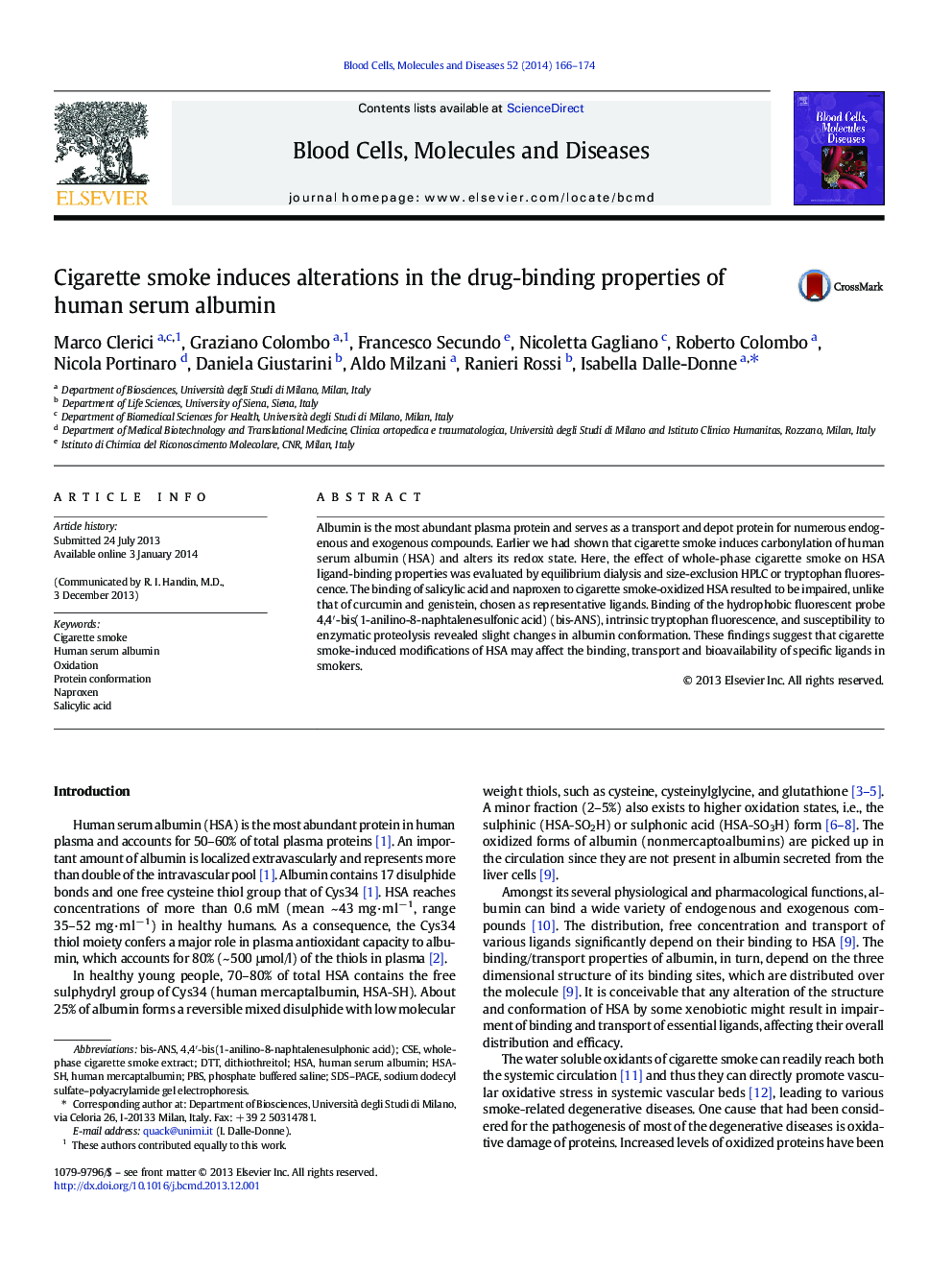| Article ID | Journal | Published Year | Pages | File Type |
|---|---|---|---|---|
| 2827282 | Blood Cells, Molecules, and Diseases | 2014 | 9 Pages |
Albumin is the most abundant plasma protein and serves as a transport and depot protein for numerous endogenous and exogenous compounds. Earlier we had shown that cigarette smoke induces carbonylation of human serum albumin (HSA) and alters its redox state. Here, the effect of whole-phase cigarette smoke on HSA ligand-binding properties was evaluated by equilibrium dialysis and size-exclusion HPLC or tryptophan fluorescence. The binding of salicylic acid and naproxen to cigarette smoke-oxidized HSA resulted to be impaired, unlike that of curcumin and genistein, chosen as representative ligands. Binding of the hydrophobic fluorescent probe 4,4′-bis(1-anilino-8-naphtalenesulfonic acid) (bis-ANS), intrinsic tryptophan fluorescence, and susceptibility to enzymatic proteolysis revealed slight changes in albumin conformation. These findings suggest that cigarette smoke-induced modifications of HSA may affect the binding, transport and bioavailability of specific ligands in smokers.
